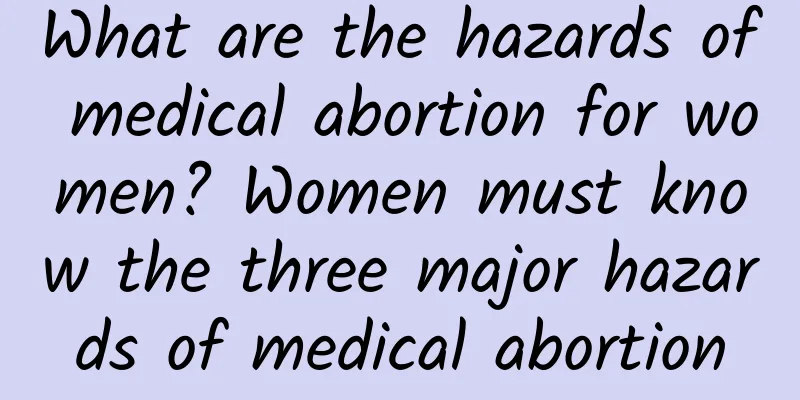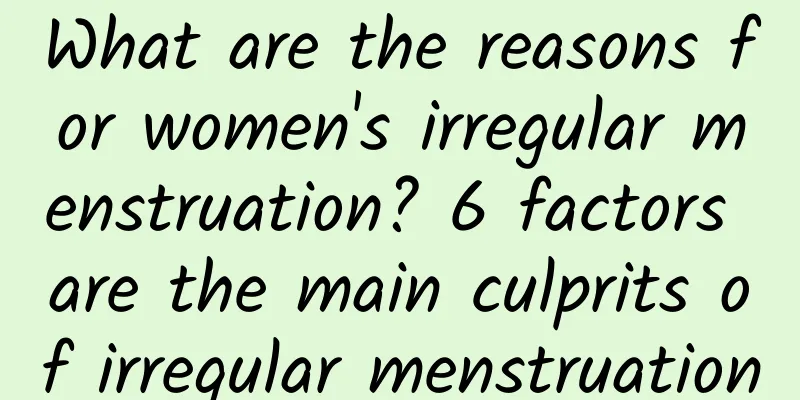What are the symptoms of endometriosis?

|
What are the symptoms of endometriosis? Patients with endometriosis often have symptoms such as heavy menstruation, dysmenorrhea, sexual pain, and infertility; if ectopic endometrium appears in the bladder and intestines, urinary system discomfort symptoms such as urgency, frequency, pain, hematuria, and abnormal bowel movement symptoms such as constipation and diarrhea may also occur. 1. Excessive menstrual flow Patients often experience increased menstrual flow and prolonged menstrual periods because when hormones stimulate the endometrium, the endometrium in the normal position will shed and the ectopic endometrium will also shed, leading to increased menstrual flow. 2. Dysmenorrhea This is the most typical manifestation of endometriosis. Patients often begin to experience abdominal pain two days before menstruation. After menstruation, the abdominal pain symptoms will become more obvious. The abdominal pain will gradually disappear until the end of menstruation. The more serious the condition, the more severe the abdominal pain. 3. Pain during sexual intercourse In some patients, the endometrium grows in the rectal fossa of the uterus and the rectal septum of the vagina. During intercourse, the ectopic endometrium will be stimulated, causing swelling and pain in the surrounding tissues. Because of the discomfort such as pain during sexual intercourse, patients will be afraid of sexual intercourse over time, resulting in a decrease in sexual desire. 4. Infertility Because the patient's ectopic endometrium bleeds every month, it is easy to cause adhesions around the fallopian tubes, affecting the output of the egg and preventing the formation of a fertilized egg. Even if a fertilized egg is formed, it will hinder the fertilized egg from entering the uterine cavity. Therefore, patients with endometriosis often have infertility problems. 5. Urinary system discomfort symptoms If ectopic endometrium appears in the bladder, or invades and compresses the ureter, the patient will experience urinary system discomfort symptoms such as urgency, frequency, pain, hematuria, etc. These symptoms are usually cyclical, and these abnormal manifestations will appear when menstruation comes, and these abnormal manifestations will be relieved or disappear after the end of menstruation. 6. Abnormal bowel movements If ectopic endometrium appears in the intestines, patients often experience symptoms such as abdominal pain, constipation, diarrhea, and sometimes periodic bloody stools. |
<<: What are the main things to pay attention to after abortion?
>>: Can vaginal ultrasound detect adnexitis?
Recommend
What are the symptoms of female cervical erosion? Can female cervical erosion heal itself?
What are the symptoms and phenomena of cervical e...
What are the hazards of cervical erosion in women?
In fact, in today's life, many women are affe...
The following points should be taken care of for pelvic inflammatory disease
Among gynecological diseases, pelvic inflammatory...
Which women will be prone to cervical erosion?
Cervical erosion is a common gynecological diseas...
Can you get pregnant again after a molar pregnancy?
It is possible to get pregnant again after a hyda...
Detailed analysis of the causes of vaginitis
Regarding the causes of vaginitis in life, expert...
What are multiple uterine fibroids? What causes multiple uterine fibroids?
Multiple uterine fibroids are the most common ben...
A brief understanding of the common clinical symptoms of cervical hypertrophy
The symptoms of cervical hypertrophy can manifest...
Can uterine fibroids be cured?
Can uterine fibroids be cured? 1. Uterine fibroid...
Typical symptoms of ovarian cysts
Ovarian cysts are one of the diseases in the ovar...
Can you lose weight by eating oatmeal every day? Beware of ketoacidosis
Artists may need to lose or gain weight for a rol...
What are the drugs for treating bacterial vaginosis?
Bacterial vaginosis BV is a syndrome caused by mi...
What is fluid accumulation behind the uterus?
The uterus is a very important part for women. Pr...
Should I eat more protein to build muscle? Nutritionist: Carbohydrates are more important!
If you want to get rid of all the extra fat and g...
There’s more to improving your immunity than just shuttlecock exercises! 4 exercises for bench press and squats to nourish muscles, high protein to increase physical strength
After being cooped up for a long time during the ...









